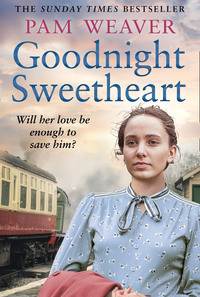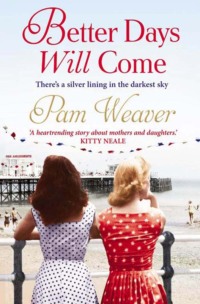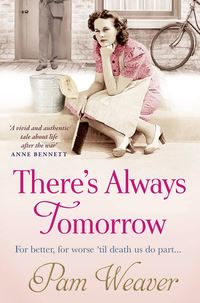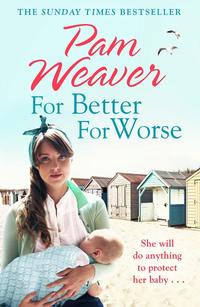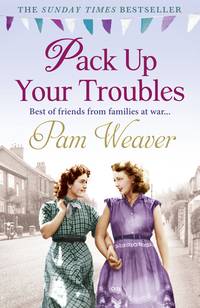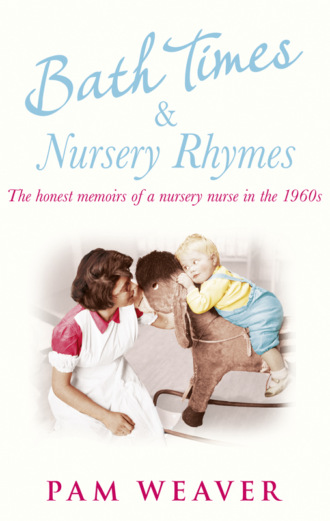
Полная версия
Bath Times and Nursery Rhymes: The memoirs of a nursery nurse in the 1960s
‘And she’s very religious,’ Isolde informed me. ‘She sings hymns all night. And of course,’ she went on, ‘she’s an awful lot older than you.’
I could just picture her. She was bound to be an ancient po-faced religious bigot, who would spend all her time trying to force me to join in with her holy activities. Oh boy, I could hardly wait to meet her! I switched off the light and sometime later, she crept in, but after my brush with Nurse Adams I didn’t feel much like singing hymns, so I rolled over and pretended to be asleep.
When the night nurse brought us our early morning cup of tea at six, Hilary and I peered gingerly at each other over our bedclothes. Her appearance was quite a shock. She was older than me, but only by a couple of years, and she was slim and attractive with dark curly hair and an engaging smile. It turned out that her dad was indeed a vicar, but she never let that deter her from doing exactly what she wanted.
When we got to know each other we discovered that the others had good-naturedly done their best to wind both of us up. Apparently I was from the deepest part of Africa and my father had been a missionary-eating cannibal! They had been so convincing, she was really nervous about sleeping in the same room as me.
Hers was the first really friendly face I’d seen at the nursery. She was working with the toddlers and I was in the baby room, but the house wasn’t that big. We’d wave to each other, or meet at meal times and have a chat and she promised that if we could both wangle the same day off, she would arrange to take me to her house. From the moment I met her I began to feel a whole lot better. She was lively and fun to be with, but she also had a dare-devil streak. Hilary wasn’t afraid to try new things and with someone to lead the way, I wasn’t either! I began to feel that perhaps being a nursery assistant wasn’t so bad after all.
The home had about thirty children altogether. They were in care for many different reasons. Homelessness was the main one but some had a sick parent who had no one to look after them while they were in hospital; some had been ill-treated or were living with parents who couldn’t cope with small children; some parents were alcoholics or had no job and no income; others were in the process of being adopted. Some stayed for only a few days while others were in the home for long periods of time, perhaps years. Apart from the times when we all met in the garden, the children were totally segregated by their ages. The rooms were divided into Babies, Tweenies and Toddlers. The Baby room took the little ones until they were a year old, the Tweenies were aged one to two years old and the Toddlers room was for the three to fives.
As a direct result of this policy, it would churn me up to see brothers and sisters clinging desperately to each other when they met. No one had, as yet, realised the devastating effect this kind of separation had on the children. The poor kids must have felt punished for something they didn’t understand and at times the feelings of loneliness must have been unbearable. Cut off from a mother and sometimes a father too, your brother or sister might be somewhere in the building but you’d only catch a glimpse of them once in a while. You would be put in a room full of strangers behind a closed door and it must have been very hard to adjust. We were all taught to obey the routine at all costs, which was hard enough when you’re sixteen and you’ve made your own choice, but when you were only three, how bewildering life must have seemed. The whole routine in Tweenies seemed to revolve around potty training. The basic philosophy appeared to be pot them every half an hour and they will be trained! As a consequence we gave them breakfast and went to the toilet. The children played for half an hour, either in the Tweenie room or in the garden, and then went to the toilet. We took them for a walk and then they went to the toilet, etc. etc. all through the day.
For all its faults, routine brought stability into the children’s lives and we never ill-treated anybody. It may have seemed a little cold at times because very close attachments were frowned upon. The staff would probably move on in life, whereas the child would have to remain; the thinking was that the child had to be protected from another sense of loss and bereavement when you left. The trouble is, we all crave relationships and this edict left a lot of children feeling unloved and unwanted. Yes, the system was misguided but for all that, I remember lots of laughter and plenty of cuddles.
I began my career in the Baby room. It was a light airy room with six little babies in six little cots. It was considered a great privilege for a nursery assistant like me to be allowed to even touch a baby and in those first few days I certainly wasn’t permitted to hold one. First, I had to prove my worth. This meant endless floor polishing, bin changing and nappy washing. The floors were like mirrors, and as my mother would say, ‘you could eat your dinner off them.’ Every day it was part of the routine to sweep, wash and polish them. The sweeping and washing was done by hand and on your knees, as was the application of the polish. The nursery had an electric polisher to get a decent shine, but it was a real skill learning how to use it. Press the control on the handle a little too hard and you’d be flying around the room and banging into everything. Press too lightly and you couldn’t get a decent shine off the linoleum floor. The whole exercise was a back-breaking and thankless task.
Before I was allowed to handle the babies, my other job was nappy washing. Funnily enough, bearing in mind my squeamishness about bedpans, I didn’t mind doing it and besides, they taught us how to make an art form out of it. All the nappies were sluiced in the nursery, and then rinsed in cold water in the laundry. The laundry itself was outside the main building and cold, freezing cold in winter. It was also dark and damp. After the nappies had been boiled for what seemed like forever in huge boilers like vats, they were pulled, scalding hot, over to the sinks with wooden tongs. (I wonder what today’s Health and Safety regulations would make of that!) Then we rinsed them twice by hand and spun them in an industrial spin-dryer. When I arrived at the nursery, the industrial spin-dryer wasn’t working so we had a domestic one. There was a loose connection on the lid so you had to sit on it in order to make it work. It really shook your bottom but one girl reckoned she’d lost pounds by sitting on it, so nobody minded too much. Soap powder was strictly rationed and Matron Thomas watched us like a hawk. We were constantly suspected of using the washing powder for our own clothes but poor as we were, none of us wanted to wash our clothes in those stinking soapsuds. They smelled like Jeyes Fluid (a very pungent disinfectant with a distinctive smell of its own) and stale lavender all rolled into one.
The hand-knitted baby cardigans and other delicates were washed in soap flakes but they were the industrial type and the devil to get to melt in the water.
If the weather was too damp or wet to dry the clothes outside we used to hang them in industrial driers, which were lit by gas. It was little wonder that the laundry had its own unique smell but the one blessing of laundry duty was that it gave a homesick sixteen-year-old a few moments to cry alone without being castigated or ridiculed. I was embarrassed to be seen to be upset and felt I should be grown up enough not to want my mother, but it was a struggle.
The person directly in charge of the Baby room, Sister Weymouth, had a staff nursery nurse and a nursery assistant to help her look after six babies. Sister Weymouth was an older woman, perhaps in her fifties. She was a skinny woman with a stooped back and spindly arms. Although a little distant, she was fair. She wore a navy coloured sister’s uniform but without the cap and cuffs. With such a high level of staffing it’s easy to understand how we managed to keep the place looking so spick and span and the reason why the type of children’s home I was working in became a thing of the past. That number of employees would cripple today’s councils with their ever-tightening budgets.
Working in the milk kitchen was like being in a pure white space capsule. We wore masks and gowns. We were taught to wash our hands between each feed preparation and the whole milk kitchen was washed from floor to ceiling every day. Incidentally, all the babies were fed on National Dried Milk, a government issue basic milk powder. I had been in the nursery for three months before I was allowed in the milk kitchen and even then I was strictly supervised. Sister Weymouth peered at me over the top of her facemask. ‘Level each scoop exactly,’ she said. ‘Too much and the baby will overdose on his vitamins and may become very ill. If you don’t fill the scoop right to the edge, the poor baby will starve.’
I was still so scared of putting a foot wrong, it never occurred to me she might be exaggerating. Three grains of National Dried Milk powder too many and I’d blow the kid up. Three grains too few and I could be accused of running a concentration camp … oh Lord, what a responsibility!
The system of child care by today’s standard was very old fashioned. For instance, meal times were rigidly adhered to for even the tiniest baby. If a baby had to be fed at six o’clock, that’s exactly what happened. I was once made to sit with a crying baby on my lap, willing the stubborn hands of the clock to move from 5.50 to 6 p.m., but not daring to put the teat in his mouth until the appointed time. If I had been caught feeding the baby before 6 p.m. it would be back to the nappy bins and floors for me. Of course it was totally ridiculous for the baby. If he had been crying for twenty minutes, he was often too exhausted to take his bottle anyway, but the rules were the rules.
My turn for being on ‘Lates’ came around again and Nurse Adams was still on night duty.
‘Don’t forget to wake the night nurse this time,’ smiled Isolde and I went to get my early supper.
She had to be kidding. After the fiasco of the week before, that was the last thing I would do. My supper was steamed cod roe on toast. It looked horribly grey and was swimming in milk, which had made the toast all soggy again. I had never experienced such ‘delights’ before but first of all I had a job to do. I took a cup of tea to Nurse Adams, making absolutely sure it was just the way she liked it, milky with no sugar. My hands were trembling slightly as I walked up the back stairs to the pokey little room in the attic where the night nurse slept. At the top of the stairs, I steadied my nerves, tipped the small spill in the saucer back into the cup, knocked lightly on the door and walked in.
‘Good evening, Nurse Adams,’ I said.
At exactly the same moment as I walked in the door, her alarm clock went off. She stirred slightly, reached out and switched it off but she said nothing. I stood still, waiting for her to sit up and take the cup but she didn’t.
There was a small locker on the opposite side of the bed. The room itself was so small I would have to squeeze my way past her clothes at the end of the bed to get round there so I decided to lean over her to put the cup on the table. It seemed to be the path of least resistance. And after all, she was still half asleep.
But wouldn’t you know it? At the precise moment the tea was halfway across the bed, she flung her arms up to stretch and yawn. There was a loud clatter as the cup and saucer parted company and the lukewarm tea fell onto the bed. ‘Oh! I’m sorry …’
‘You!’ she shrieked, opening one bloodshot eye. ‘Get out, get out!’ A soggy pillow followed me out of the door and I had gained the reputation of being the village idiot.
Конец ознакомительного фрагмента.
Текст предоставлен ООО «ЛитРес».
Прочитайте эту книгу целиком, купив полную легальную версию на ЛитРес.
Безопасно оплатить книгу можно банковской картой Visa, MasterCard, Maestro, со счета мобильного телефона, с платежного терминала, в салоне МТС или Связной, через PayPal, WebMoney, Яндекс.Деньги, QIWI Кошелек, бонусными картами или другим удобным Вам способом.


